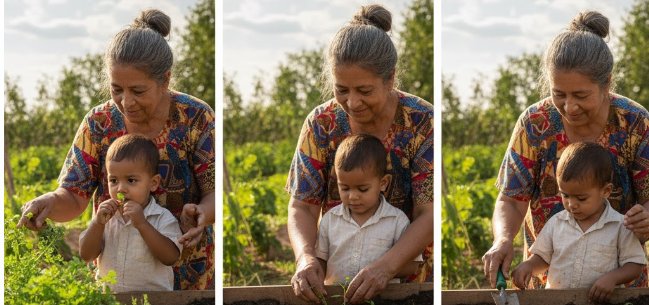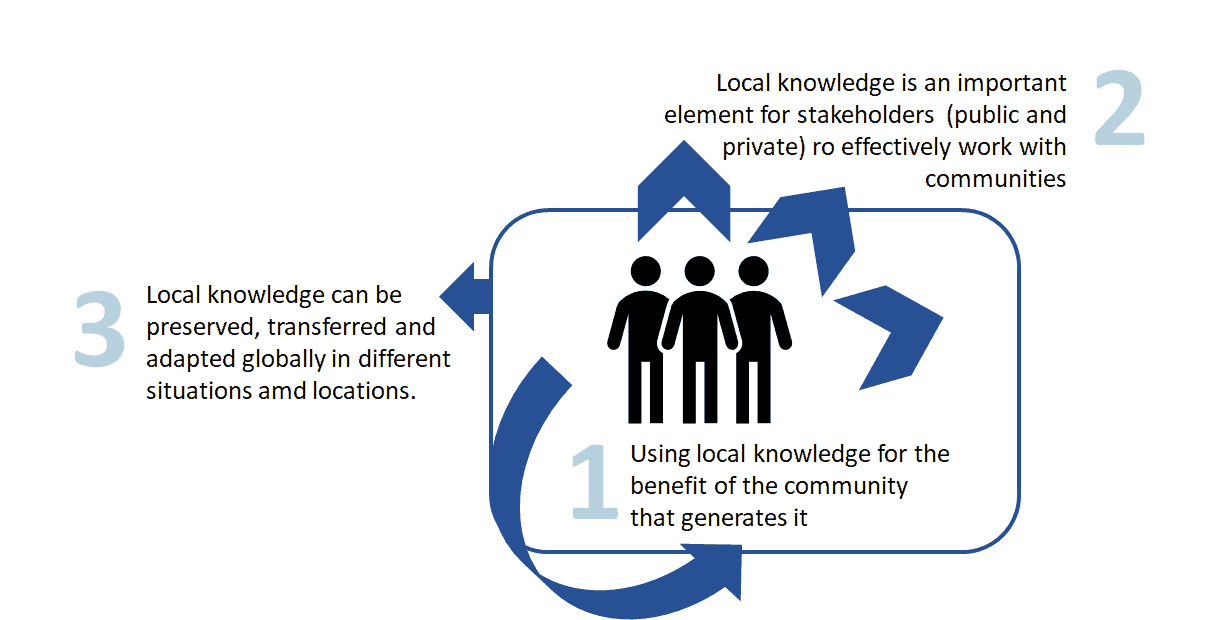SD Research Focus on Innovative Commuities
Criticality of Local Knowledge
| Hari Srinivas | |
| Concept Note Series E-180. June 2019 |

In recent years, it has been recognized that ordinary local knowledge [1], based on careful observation and common sense, is a valuable and untapped resource that speaks directly to community problem-solving. Such knowledge, often generated through methods of participatory research, has been accumulated, owned, and controlled by local residents, concerned with their living environment such as quality of the air, drinking water, tilling soil, harvesting forest produce, fishing rivers, lakes, and oceans.
Learning about their own environment by themselves and accumulating the local knowledge enables residents to make appropriate judgment on the changes in their environment, understand the causes, and deciding on the most appropriate policies and actions to be implemented in their communities. This also acts as a counter-balance to outside/external expertise and knowledge.
|
Local knowledge refers to the understandings, skills and philosophies developed by societies with long histories of interaction with their natural surroundings. For local communities, local knowledge informs decision-making about the fundamental aspects of their day-to-day life.
UNESCO
|
The methods and techniques directly imported to the communities are sometimes not successfully adopted because they are unsuited to the needs, environment, capacities, and available recourses within the communities. Thus, the utilization of local knowledge, as a logical adaptation to existing conditions and circumstances, is a fully rational, effective, efficient, and functional approach to local problems solving.

In many cases, local knowledge is derived from many years of experience of residents, and it is a part of cultural traditions that have evolved with local environment. It has often been communicated and learned through family members over generations. It includes knowledge of various cultural norms, social roles, and physical conditions such as climate or lunar cycles. Such knowledge often consists of dynamic insights and techniques that change over time through practical experimentation and adaptation to environmental and socioeconomic shifts. Therefore, local knowledge needs to be understood in the context of unique history, tradition, and culture of the communities.
| Local Knowledge consists of information, beliefs, traditions, practices, institutions, and worldviews developed and sustained by local communities, and represent an adaptive strategy to the environment in which these communities live. | Some examples of agricultural local knowledge:
|
Local knowledge plays a key role in problem identification, definition, legitimization, and most importantly, in any solutions that may be put forward. Since many socials problems have their origins in a local context - environmental problems being a prime example - local citizens' understanding of the problem is to essential to effectively identifying and defining the problem. Moreover, it has been shown that citizen involvement in both defining problems and finding solutions is an important factor in building the legitimacy requited to implement policy effectively. Without the understanding and consensus of the local actors, as many failures in the past have shown, the chances of successful policy implementation are minimal.
Understanding the historical context, cultural traditions and norms, and sometimes religious aspects, also play a critical role in defining a community - prerequisites indeed to the sustainable development and innovativeness of a community!
Ultimately, we need to recognize that local communities possess detailed knowledge on their local environment and its sustainability. This knowledge is formed through their direct dependence and interaction with their local ecosystems, and observations and interpretations of change generated that is passed down over many generations, and adapted and enriched over time.
Local communities from around the world often live in remote areas, interacting with nature and managing resources that contribute to society at large. They are also affected directly from the pressures of expanding geographical, economic and other activities such as agriculture, mining, logging, and energy. They are often better placed than scientists to provide detailed information on local environmental change, and are important contributors to the governance of their community.
| [1] | Local knowledge is a term that is also frequently used along with "Indigenous Knowledge Systems" |
|
|
 |
Return to Innovative Communities Contact: |
